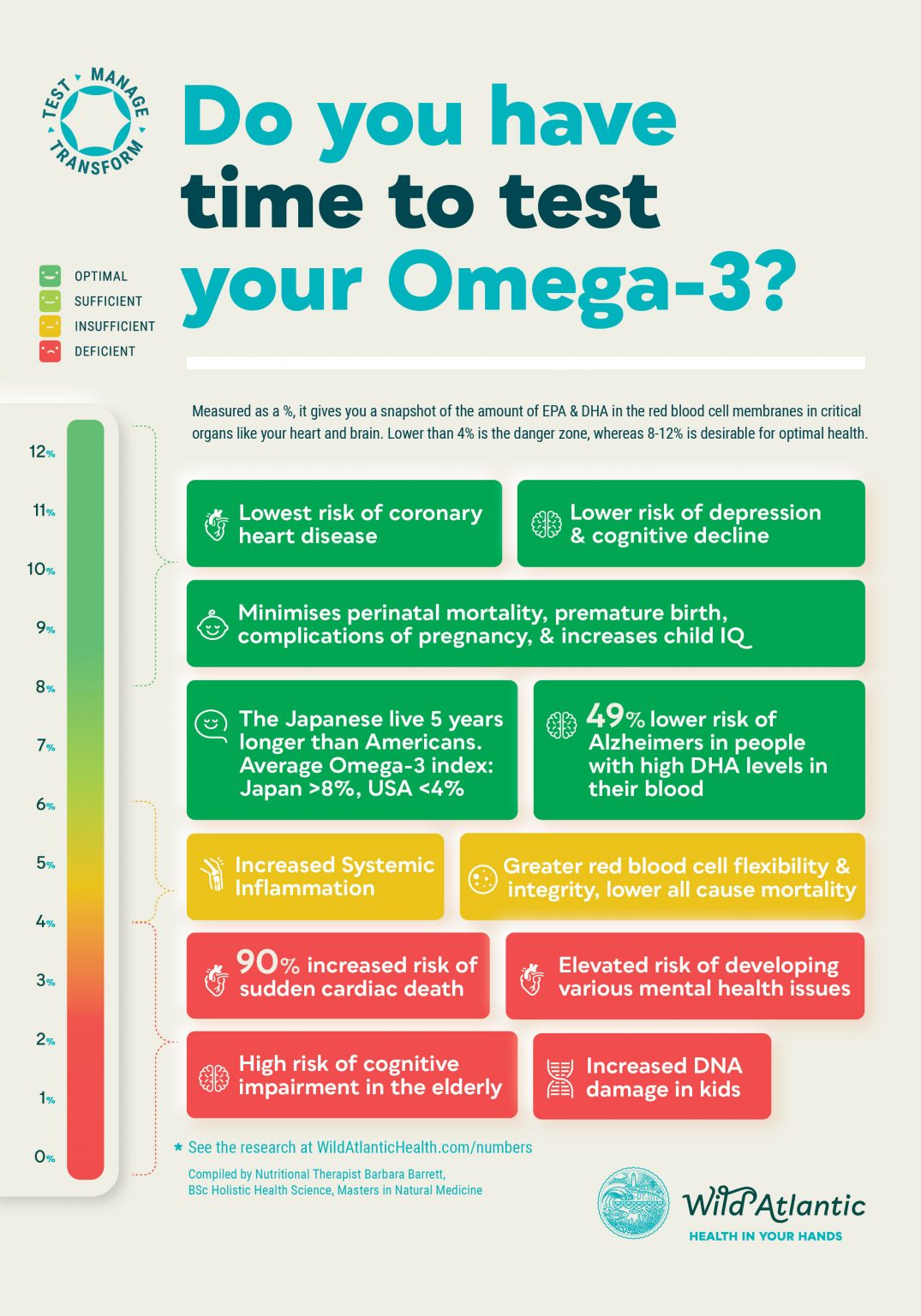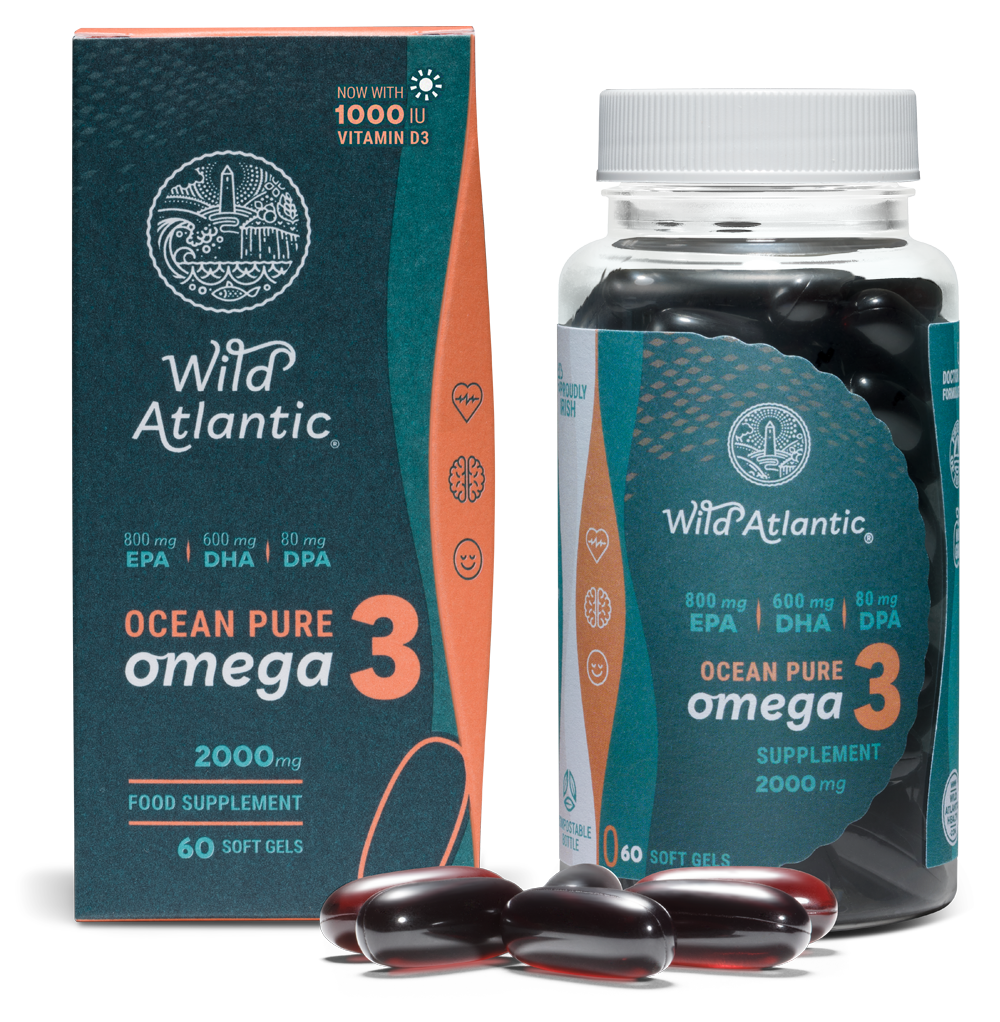The Impact of Omega-3 Deficiency
Knowing your Omega-3 levels can be life changing but also life saving.
Suppose you could, with precision, determine your personal risk for sudden cardiac death— but then reduce it substantially in a matter of weeks while also helping to extend your life span by 5 years…would you be interested?
The revolutionary Omega-3 Index provides a clear picture of the percentage of EPA/DHA Omega-3 fatty acids in your blood to estimate your risk of a major cardiac event and helps to identify other critical health risk factors in advance.
Some of the health risks and benefits of knowing your Omega-3 levels are highlighted in our new Omega-3 thermometer below. For full transparency, if you are interested in learning more about any of the statements below, click the glowing asterisks, these will direct you to the scientific research.
Knowing your Omega-3 index is just as, if not more important, than knowing your cholesterol level or blood pressure, and ‘fixing’ the Omega-3 index is much easier – not to mention cheaper and safer than treating all those other risk factors. Improving your Omega-3 Index score can be solved by eating more fish or taking a high-quality Omega-3 supplement.
KNOW YOUR INDEX
Research References
- The Omega-3 Index: a new risk factor for death from coronary heart disease? – link
- HS-Omega-3 Index and psychiatric diseases – link
- Cognitive Impairment Is Associated with a Low Omega-3 Index in the Elderly: Results from the KORA-Age Study – link
- Omega-3 Fatty Acids in Pregnancy—The Case for a Target Omega-3 Index – link
- Polyunsaturated fatty acid levels of serum and red blood cells in apparently healthy Japanese subjects living in an urban area – link
- Can a High Omega-3 Level Add Years to Your Life? New Research Says Yes! – link
- Red Blood Cell DHA Is Inversely Associated with Risk of Incident Alzheimer’s Disease and All-Cause Dementia: Framingham Offspring Study – link
- The omega-3 index is inversely associated with the neutrophil-lymphocyte ratio in adults – link
- Omega-3 index is directly associated with a healthy red blood cell distribution width – link
- Cardiovascular benefits of omega-3 fatty acids – link
- Omega-3 fatty acids and mental health – ScienceDirect – link
- Cognitive Impairment Is Associated with a Low Omega-3 Index in the Elderly: Results from the KORA-Age Study – Abstract – link
- New Study Shows Kids with Higher Omega-3 Levels Have Healthier DNA – link





















